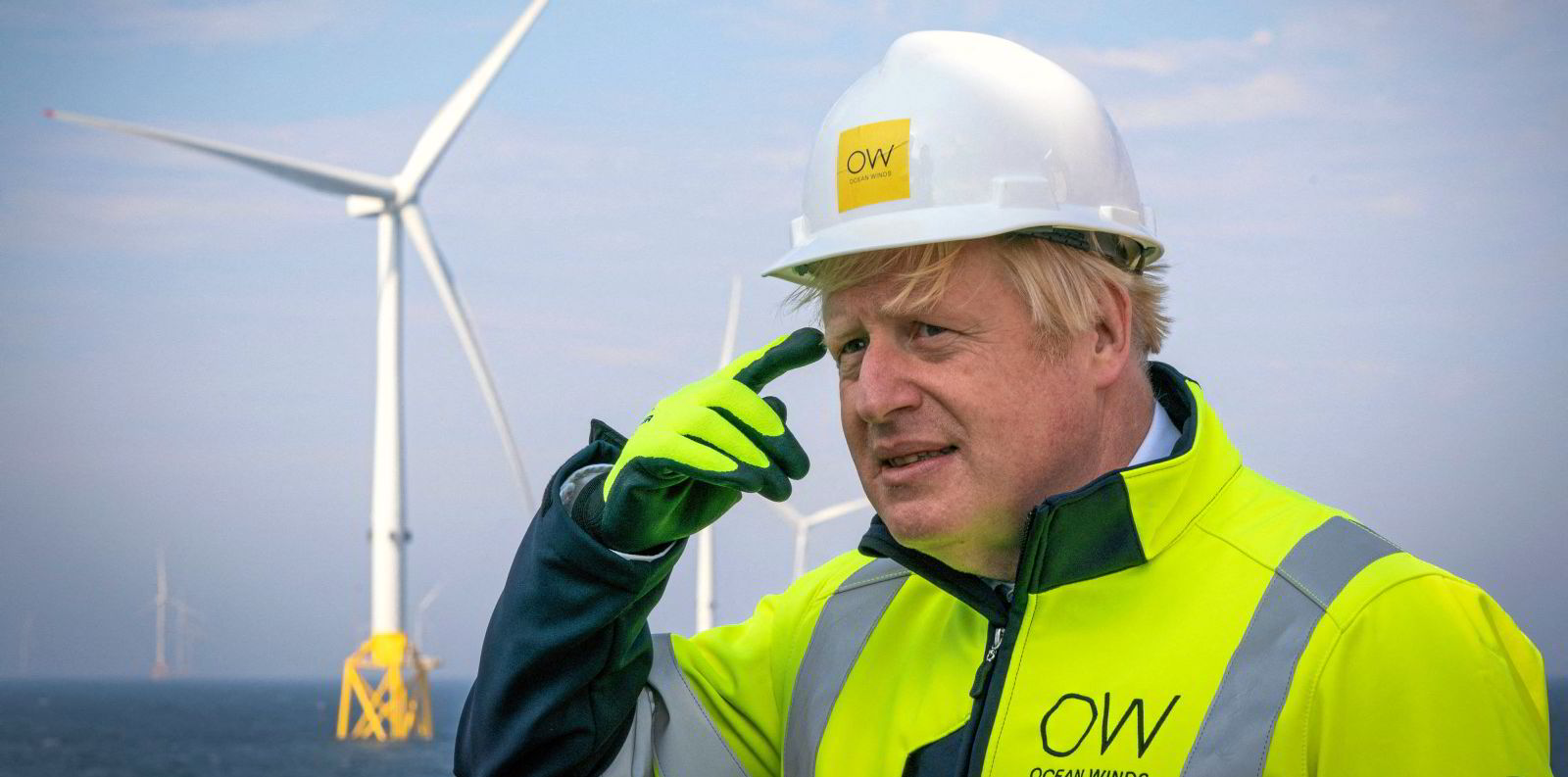Net Zero: wasting Brexit opportunities
News & Social Media / Post
Boris Johnson has turned his back on Brexit

The more you scrutinise Net Zero, the dafter it looks, and the more the green blob will call you a climate denier – just as opposition to the EU makes you “thick and racist”. This is why the green blob doesn’t want a Net Zero referendum. They know they’d lose again – and for the same reasons.
My experience of the Brexit referendum was that the EU most ardent proponents knew very little about it or how it functions. I had a number of clashes with Brexiteers who have a blind spot when it comes to trade policy, but on balance, remainers were generally more ignorant.
The remainer blind spot was a failure to understand just how much was under the control of the EU. To the average remainer, the EU was just a “trade bloc” that allowed them perks such as freedom of movement and shorter queues at the airport. Few understood that the EU regulated all of our utilities to one extent or another and governed the parameters of markets. Much like an iceberg, the bit you see above water is only a fraction of the overall size.
As the EU grew in size and scope, it would gradually take on more competences, seeking to harmonise regulation to create EU wide markets. There is a certain logic to doing this in some sectors, but if you have pooled regulation you accept that you necessarily have fewer powers to reform them unilaterally, which means any attempt at reform is usually a long and often fruitless enterprise, where often the best you can secure is marginal tinkering rather than a market restructure. Things that are broken tend to stay broken.
The problem with the EU was that the harmonised regulation would often be worse than what it replaced in the UK. Prior to EU membership, if an industry identified a problem with bad regulation, there was a process through which change could be secured. Inside the EU, a minister would have to go off to Brussels to seek permission or initiate the change process, which can take a decade or more. A lot of damage can be done in that time. Fisheries discard rules is one such example.
In order for any system of laws to be democratic it has to be responsive to the demands of those living under them. This is why the EU could never be considered a democracy. Once a minister goes to Brussels they’re up against the inherent red tape of the process and a massive circuit of lobbyists – to the point where it wasn’t even worth asking for reforms because we knew what the answer would be. Securing agreement between 27 members each with their own domestic agendas is never straightforward.
A recent example of this is the haulage industry. Freedom of movement and single market cabotage rules allowed eastern European drivers, working on a pittance, to undercut the entire sector across the whole of Europe. This has long created disquiet in the industry as it drove down wages and deterred new drivers from entering the sector – culminating in the very driver shortage we see today as older drivers retire.
Reforms to the rules were eventually secured (making it worse) to level out the market, but those reforms now face challenges from nine member states in the ECJ and may yet be reversed. Therein lies the most obvious case for Brexit. Recent events have highlighted the need for a major restructuring of energy markets, which could not be done unilaterally or quickly while inside the EU.
Arguably it makes sense for the mainland of Europe to develop a common energy strategy and a common energy market, but the UK, having its own reserves, and far less dependent on Russian gas, never needed to be part of it. Now that we’re out of the EU we have a freer hand than before to design our own energy markets accordingly.
The need for this responsiveness has not gone unnoticed by EU member states. Once again, EU leaders have dismissed Spain’s impassioned pleas for market reform to curb the dramatic rise of electricity prices across the continent. The politically explosive issue has been on the agenda for the past six months and took a turn for the worse after Russia, the bloc’s main gas supplier, invaded Ukraine, sending markets trembling and inflation soaring. The vastly different energy mixes of each member state and clashing views about market intervention put the brakes on Madrid’s vigorous reforming campaign.
At the end of talks this week, the 27 agreed to allow Spain and Portugal to introduce exceptional and temporary measures in the Iberian market, such as price caps, an instrument that, while extraordinary, falls short of the market reforms that Madrid had been pleading for. Spain’s agenda is adamantly opposed by countries like Germany, the Netherlands, Denmark and Austria, who defend the current system because it guarantees transparency and “promotes investment in the cleaner resources” (for what that’s worth).
There is a clear need for Spain to develop its own policies being that Spain is an “energy island”, not dependent on Russian gas, with a higher-than-average share of renewables but scarce interconnections with the rest of mainland Europe. This makes it easier to implement exceptional measures without endangering the rest of the European market. All the same, Brussels says no because the ideological demands for homogeneity trump pragmatism every time, even in an energy emergency. Brussels fears that any divergence or special dispensation for member could bring about an unravelling as other members demand their own exemptions.
The test of Boris Johnson’s government is whether they have the wits to do anything useful with Brexit now that they can act without seeking permission. Clearly things cannot continue as they are.
To date, nobody in the green blob is able to articulate how we are supposed to accommodate a massive increase in renewable generation capacity. Further expansion of renewables will make our gas dependency worse. Only gas can now support renewables. Battery storage technology at scale is a long way off and raw material costs rising means we may never have the battery capacity we need. High tech, high fantasy solutions, and tinkering with the energy market around the edges does not address the energy emergency we’re experiencing today.
In this, the Tories seem intent on making the problem worse. Expanding the fleet of offshore wind turbines increases the volatility margins when we don’t have enough conventional gas plant for when the wind does not blow. We are therefore running two concurrent energy policies. One for the Net Zero future, and an expensive interim policy to mitigate the problems it creates.
The absolute priority for this government is to recognise that gas and fossil fuels will continue to play a significant role in our energy mix for a long time to come, and must bring down the cost of gas by any means necessary. Circumstances cannot wait. We must also look at what we can do to increase the efficiency of existing plant. Modern CCGT plant has made considerable leaps but there is always room for improvement.
Now that we are outside of the EU, we have the freedom to think differently and act faster. The problem is that the modern Tory party does not think any differently from the Brussels establishment, and Westminster is just as much in the grip of the green blob as Brussels. The pragmatism and energy we thought we might get from a Brexit government has evaporated and the establishment is reverting to its habitual virtue signalling. Johnson’s green Tories are squandering Brexit and leading us towards an economic catastrophe. Unless the government can find the political will to do anything differently, we are no better off for having left the EU.
With the government having signed contracts with service providers dealing with the dinghy invasion going all the way up to 2030, it is clear that there will be no major overhaul of immigration and asylum rules, just as Net Zero tells us that we are to remain in lockstep with suicidal EU energy policies. Boris Johnson has turned his back on Brexit and doesn’t have the guts or the brains to do anything with it. Thus, we are back to square one, where only UKIP is offering an alternative.
Recent National News












